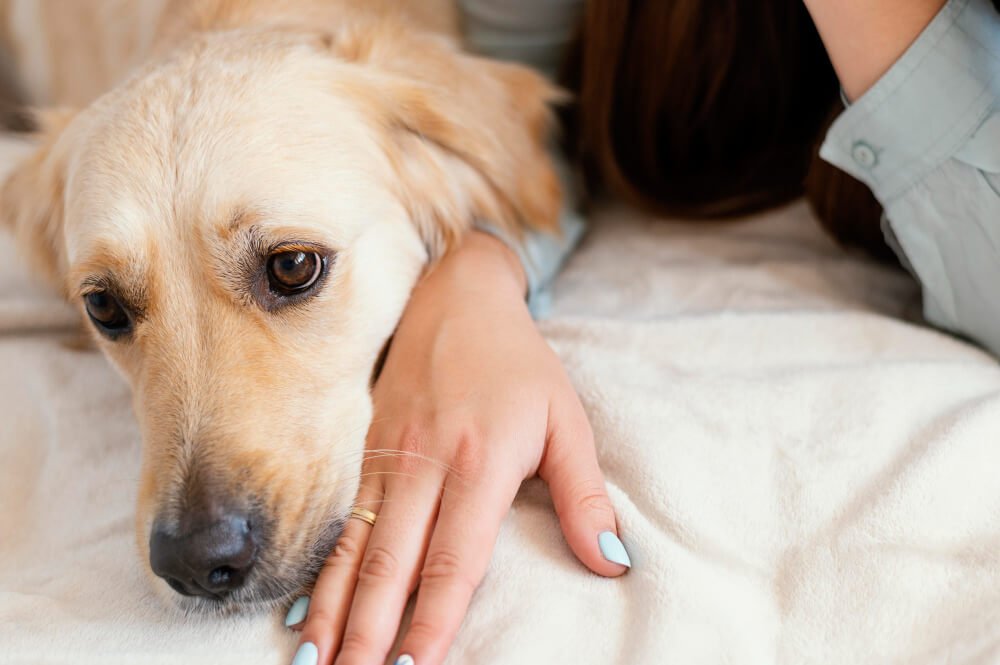Dog pregnancy, also known as canine pregnancy, is the process of a female dog carrying and giving birth to puppies. The average length of dog pregnancy is around 63 days, although it can range from 58 to 68 days. Some signs of dog pregnancy include decreased appetite, weight gain, and nipple enlargement. It’s important to have a veterinarian examine your dog to confirm pregnancy and to monitor the health of the mother and puppies throughout the pregnancy. Determining dog pregnancy can be done through various methods, including ultrasound, palpation, and blood tests. It’s important to provide proper nutrition and care for the mother during pregnancy to ensure the health and well-being of the puppies.
Physical Signs That Your Dog is Pregnant
There are several physical signs that your dog may be pregnant. One of the most noticeable signs is weight gain, as the mother’s body will nourish growing puppies. You may also notice a decreased appetite or a change in eating habits. As the pregnancy progresses, you may see the dog’s nipples enlarge and darken, and you may notice milk production. The dog may also appear lethargic or tired, as the energy is being diverted to growing puppies. Additionally, you may see the dog’s belly grow and become firmer as the puppies develop. However, it’s important to note that not all dogs will display these physical signs; some may be subtle or difficult to detect. Therefore, it’s important to have a veterinarian examine your dog to confirm pregnancy and monitor the health of the mother and puppies throughout the pregnancy.

How to Know if Your Dog is Pregnant Using Blood Tests & Ultrasounds
Blood tests and ultrasounds are two methods that can be used to determine if a dog is pregnant. A veterinarian can perform a canine pregnancy test, it measures the levels of a hormone called relaxin, which is produced by the placenta after implantation. This hormone can be detected in the dog’s blood as early as 22-27 days after breeding. An at-home dog pregnancy test is also available, but it may not be as accurate as a test performed by a veterinarian.
Another method to confirm dog pregnancy is through ultrasound. An ultrasound can detect the presence of puppies as early as 25-30 days after breeding. This method is safe for both the mother and puppies and can provide information about the number of puppies and their development. However, it’s important to note that not all veterinarians can access ultrasound equipment, which may be more costly than a blood test.
What to Do if You Suspect Your Dog is Pregnant
If you suspect your dog may be pregnant, the first step is to take her to a veterinarian to confirm the pregnancy and receive prenatal care. The veterinarian will be able to advise you on the best course of action to ensure the health of the mother and puppies. Proper nutrition is essential during pregnancy, so switching to high-quality dog food formulated for pregnant or nursing dogs is important. The best food for pregnant dogs will have higher levels of protein, calories, and fat to support the mother’s increased nutritional needs and the growth of the puppies. Additionally, the veterinarian may recommend supplements or vitamins to ensure the mother and puppies are getting all the necessary nutrients. It’s important to provide a comfortable and safe environment for the mother during pregnancy and prepare for the arrival of the puppies. Your dog can have a healthy and successful pregnancy with proper care and attention.
How many puppies can a dog have in one litter?
The number of puppies a dog can have in one litter can vary depending on the breed, age, and size of the dog. On average, dogs can have between 1 to 12 puppies in a single litter, with 6 to 8 being the most common. However, some breeds, such as Great Danes, may have smaller litters, while others, such as Labrador Retrievers, may have larger ones. Additionally, the age and health of the mother can also play a role in litter size, with younger and healthier mothers typically having a larger litter. It’s important to provide proper nutrition and care for the mother during pregnancy to ensure the health and well-being of the puppies.





Add comment